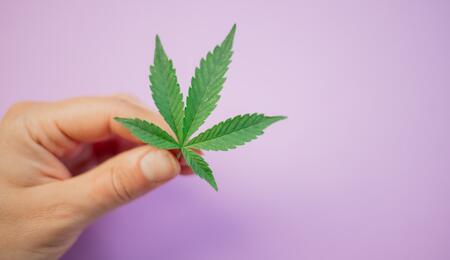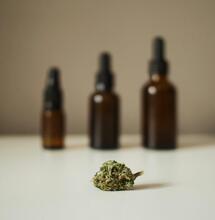CBGA and CBDA Can Counteract Coronavirus

Cannabis components may prevent the virus from entering healthy cells, according to a new lab study published in the Journal of Natural Products. Researchers at the University of Oregon carried out chemical screening of compounds to find out how the compounds interact with the alpha and beta types of the virus; they found the two cannabinoid acids, CBGA and CBDA, were effective against the pathogen. The research did not involve human studies.
CBGA and CBDA, the precursors of CBG and CBD extracted from hemp plants, were found to neutralize protein parts of the coronavirus and prevent infection, according to the new study.
Richard van Breemen, the researcher who led the study and other scientists at the Oregon Health and Science University, said, "CBDA/CBGA treatment should make for a much more challenging environment for SARS-CoV-2" alongside vaccination.
"Orally bioavailable and with a long history of safe human use, these cannabinoids, isolated or in hemp extracts, have the potential to prevent as well as treat infection by SARS-CoV-2", the researchers note in the abstract of the study.
CBGA and CBDA were found to counteract the spike protein in the coronavirus, diminishing its chances to corrupt healthy cells. The spike protein is one of several different protein structures researchers target when developing drugs to prevent Covid-19. The finding potentially opens new doorways on approaching disease treatment.
Van Breemen, who's associated with the Oregon State's Global Hemp Innovation Center in the College of Pharmacy and Linus Pauling Institute, said in a statement: "Any part of the infection and replication cycle is a potential target for antiviral intervention, and the connection of the spike protein's receptor binding domain to the human cell surface receptor ACE2 is a critical step in that cycle.
"That means cell entry inhibitors, like the acids from hemp, could be used to prevent SARS-CoV-2 infection and also to shorten infections by preventing virus particles from infecting human cells. They bind to the spike proteins so those proteins can't bind to the ACE2 enzyme, which is abundant on the outer membrane of endothelial cells in the lungs and other organs", he said.
Cannabidiolic acids like CBGA and CBDA are extracted from fresh hemp plants. Decarboxylation converts the acids into their more famous cannabinoid forms, CBG and CBD. CBG is a minor cannabinoid that shows promise in the treatment of neurological conditions, glaucoma and blood pressure. CBD already has widespread use in medicine, with millions of people using it for treating various ailments.
Previous research from 2021 has also hinted CBD may help inhibit virus replication in lung cells.



